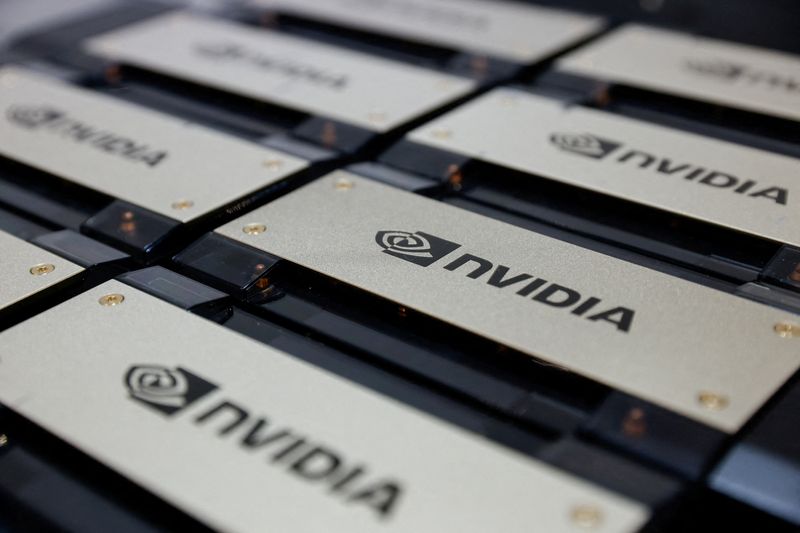U.S. stocks edge higher after weekly jobless claims; Salesforce gains
Investing.com -- Nvidia’s decision to invest $5 billion in Intel and collaborate on next-generation chips marks a turning point for the U.S. semiconductor industry, according to Wedbush analysts.
The agreement, announced Thursday, will see Nvidia purchase Intel shares at $23.28 each while the two companies jointly develop custom data center and PC products.
“This is a game-changer deal for Intel as it now brings them front and center into the AI game,” Wedbush said, adding that recent developments amount to “a golden few weeks for Intel after years of pain and frustration for investors.”
The collaboration aims to combine Nvidia’s artificial intelligence and accelerated computing capabilities with Intel’s CPU technology and x86 ecosystem.
Wedbush explained that for data centers, Intel will build Nvidia-custom CPUs to be integrated into Nvidia’s AI infrastructure platforms. On the PC side, Intel will develop system-on-chips incorporating Nvidia’s RTX GPU chiplets to balance performance across CPUs and GPUs.
The firm said the move highlights the companies’ focus on “leveraging NVDA’s AI and accelerated computing stack with Intel’s CPUs and vast x86 ecosystems to lay the foundation for the next wave of computing with AI reinventing every layer of the computing stack.”
While no sales timeline has been provided, analysts noted the deal will not alter either company’s growth strategy, as both continue to benefit from surging demand for high-performance chips.
“With AI infrastructure investments continuing to grow … the chip landscape remains NVDA’s world with everybody else paying rent,” Wedbush said.
The firm added that the partnership also bolsters the U.S. lead in the “AI Arms Race against China,” with Intel shifting “from a laggard to a catalyst.”
Elsewhere, analysts at Baird described the move as a "historical collaboration," adding that it is "powerful and incorporates longer-term positive implications for future joint-architecture developments that are mutually beneficial and will catalyze Intel’s AI exposure from a manufacturing, architecture, and market share standpoints."
